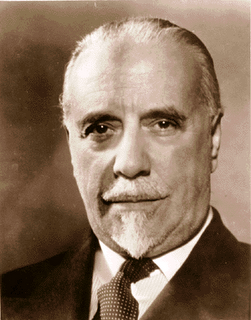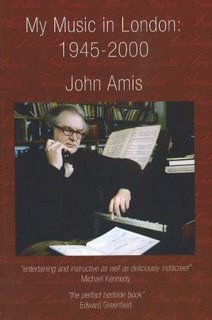Colin Davis, assistant conductor of the BBC Scottish Orchestra, conducted his first professional opera on the stage at Sadler's Wells on Wednesday night and it was a triumph. The audience gave him a warm reception and the critics in London have welcomed him as an outstanding Mozartian. It is difficult to avoid saying "I told you so" for this column has repeatedly acclaimed his work in conducting concert performances of operas by Mozart, Verdi and Beethoven in Oxford and Cambridge with the Chelsea Opera Group.
Sadler's Wells will be well advised to snap up Mr Davis when his contract with the BBC expires next year for they badly need a conductor with a sense of style and the authority to achieve a lively and well-balanced performance. The debut at the Wells was made with The Seraglio; the music emerged warm, flexible, meaningful and with, above all, an excellent pace and rhythm. The singing, alas, was not in the same class, although it was clearly not for want of rehearsal.
Jennifer Vyvyan sang the fabulously difficult part of Constanze and her musicianship and feeling for the role were immeasurable. Much of her singing was meltingly beautiful except - and it is a notable exception - that she developed a disturbing quick vibrato on nearly all high notes from F upwards. In the interval rumour had it that she has been troubled with asthma recently - that would no doubt account for this unexpected flaw; and we sincerely hope that it is a temporary one.
The other lady, Blonde, was sung by June Eronhill like a parody of a soubrette with a voice like a squeaking mouse. When the two girls sang high together the noise was like one of those Goon-Show sequences with a speeded-up tape.
William McAlpine seemed inhibited. He sang all the notes that Belmonte has to sing very well indeed, but one wanted to put a squib in his pocket, it was so dull. Kevin Miller's Pedrillo was badly sung and his speaking was a silly imitation of a university accent.
There only remains the Osmin of William Clarkson. He was quite unsuited to the part by temperament - there is not an ounce of honest rage in him - yet by applying his usual commonsense to the task he succeeded tolerably well. The staging and settings were quite acceptable.
Aida at the Garden this week brought Rudolf Kempe as a new conductor in this rather ineffective production. Kempe made a very good job of it and showed that he can be exciting when he is not too self-consciously holding back climaxes. It is not easy to approve of his habit of keeping "The Valkyries" down in order to make "The Twilight of the Gods" more telling, and certainly Verdi needs a fortissimo when he marks one - and Mr Kempe obeyed him to the letter.
Lately I have been wondering if the Chorus, for so many years the most stable excellence in the Opera House, is not getting rather lack-lustre. A bit more ginger is wanted. The greatest pleasure of the evening came from the singing of Jon Vickers as Radames and Regina Resnik as Amneris; John Shaw's Amonasro grows apace and Amy Schuard was almost mellifluous in the second and third acts.
The numbers 385, 622, 550 and 551 indicate no mysteries of American football but are the catalogue designations of the works of Mozart that Sir Thomas Beecham conducted in the Festival Hall: the Haffner and the last two symphonies together with the Clarinet Concerto. One came out ecstatic but almost exhausted by so much beauty. Some of Sir Thomas's tempi were on the fast side but they were powerless to rob the music of its validity.

I should like to tell a story that shows a side of Beecham which may not be familiar to all my readers. I rang Mr Brownfoot, Sir Thomas's faithful librarian for many years, to make sure about the first, of the two encores played -it was the March, K.249, with Beecham's own fairly discreetly added clarinets and trombones - and happened to ask him if he had been marking the parts of the G minor Symphony at the time.
The G minor Symphony, No 50, was played after the interval, complete with Sir Thomas's latest emendations. Now this work has been played by this conductor perhaps more frequently than any other Mozart symphony. And yet here he is, at the age of 75, having new thoughts about the work (and I know from experience that this remarking of old parts is a constant process). This is absolutely typical of Beecham. It is no whim of an old man but the continual searching for truth that is the hallmark of an artist ever young in spirit.
Hindsight (HS): The sub-editors of 'The Scotsman' in the London office at 63 Fleet Street were a bunch of nice guys, especially the chief of the genus, Charles Roberts,a highly intelligent man who would have gone much further, the others said, if it had not been for his overuse of the Scottish national elixir. They sometimes cut my stuff, but not often and the fact that my headings were not always used was, they said, the works of the other subs up in Head Office,jealous of my talents: booboos like Mozart's Symphony in G minor No. 50 were rare. Although another notice ended in the air with "the playing of the London Symphony Orchestra was full of..."
Sadler's Wells will be well advised to snap up Mr Davis when his contract with the BBC expires next year for they badly need a conductor with a sense of style and the authority to achieve a lively and well-balanced performance. The debut at the Wells was made with The Seraglio; the music emerged warm, flexible, meaningful and with, above all, an excellent pace and rhythm. The singing, alas, was not in the same class, although it was clearly not for want of rehearsal.
Jennifer Vyvyan sang the fabulously difficult part of Constanze and her musicianship and feeling for the role were immeasurable. Much of her singing was meltingly beautiful except - and it is a notable exception - that she developed a disturbing quick vibrato on nearly all high notes from F upwards. In the interval rumour had it that she has been troubled with asthma recently - that would no doubt account for this unexpected flaw; and we sincerely hope that it is a temporary one.
The other lady, Blonde, was sung by June Eronhill like a parody of a soubrette with a voice like a squeaking mouse. When the two girls sang high together the noise was like one of those Goon-Show sequences with a speeded-up tape.
William McAlpine seemed inhibited. He sang all the notes that Belmonte has to sing very well indeed, but one wanted to put a squib in his pocket, it was so dull. Kevin Miller's Pedrillo was badly sung and his speaking was a silly imitation of a university accent.
There only remains the Osmin of William Clarkson. He was quite unsuited to the part by temperament - there is not an ounce of honest rage in him - yet by applying his usual commonsense to the task he succeeded tolerably well. The staging and settings were quite acceptable.
Aida at the Garden this week brought Rudolf Kempe as a new conductor in this rather ineffective production. Kempe made a very good job of it and showed that he can be exciting when he is not too self-consciously holding back climaxes. It is not easy to approve of his habit of keeping "The Valkyries" down in order to make "The Twilight of the Gods" more telling, and certainly Verdi needs a fortissimo when he marks one - and Mr Kempe obeyed him to the letter.
Lately I have been wondering if the Chorus, for so many years the most stable excellence in the Opera House, is not getting rather lack-lustre. A bit more ginger is wanted. The greatest pleasure of the evening came from the singing of Jon Vickers as Radames and Regina Resnik as Amneris; John Shaw's Amonasro grows apace and Amy Schuard was almost mellifluous in the second and third acts.
The numbers 385, 622, 550 and 551 indicate no mysteries of American football but are the catalogue designations of the works of Mozart that Sir Thomas Beecham conducted in the Festival Hall: the Haffner and the last two symphonies together with the Clarinet Concerto. One came out ecstatic but almost exhausted by so much beauty. Some of Sir Thomas's tempi were on the fast side but they were powerless to rob the music of its validity.

I should like to tell a story that shows a side of Beecham which may not be familiar to all my readers. I rang Mr Brownfoot, Sir Thomas's faithful librarian for many years, to make sure about the first, of the two encores played -it was the March, K.249, with Beecham's own fairly discreetly added clarinets and trombones - and happened to ask him if he had been marking the parts of the G minor Symphony at the time.
The G minor Symphony, No 50, was played after the interval, complete with Sir Thomas's latest emendations. Now this work has been played by this conductor perhaps more frequently than any other Mozart symphony. And yet here he is, at the age of 75, having new thoughts about the work (and I know from experience that this remarking of old parts is a constant process). This is absolutely typical of Beecham. It is no whim of an old man but the continual searching for truth that is the hallmark of an artist ever young in spirit.
Hindsight (HS): The sub-editors of 'The Scotsman' in the London office at 63 Fleet Street were a bunch of nice guys, especially the chief of the genus, Charles Roberts,a highly intelligent man who would have gone much further, the others said, if it had not been for his overuse of the Scottish national elixir. They sometimes cut my stuff, but not often and the fact that my headings were not always used was, they said, the works of the other subs up in Head Office,jealous of my talents: booboos like Mozart's Symphony in G minor No. 50 were rare. Although another notice ended in the air with "the playing of the London Symphony Orchestra was full of..."

